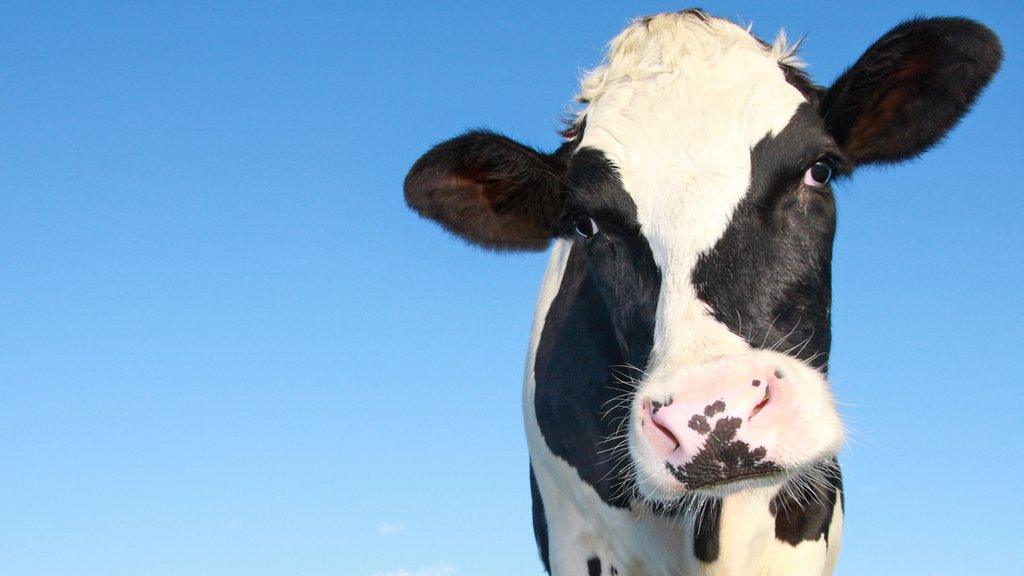New Zealand plan to start taxing cow and sheep burps!
- Published
- comments
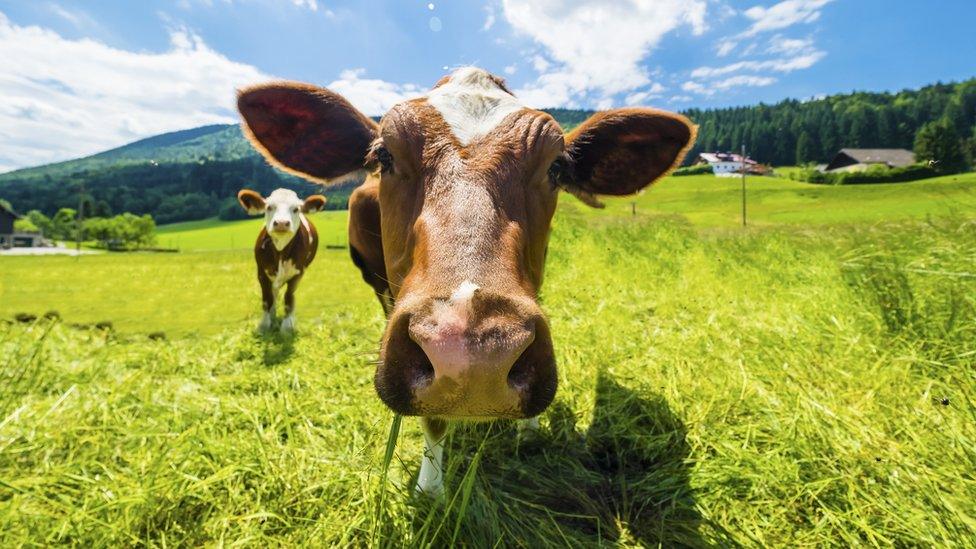
Smelly... cattle are known to produce a lot of methane!
Livestock, which includes animals like cows and sheep, are known to be one of the planet's biggest producers of methane, a greenhouse gas which contributes to global warming.
And a lot of that methane comes from when animals pass gas - like burping. Now, one country has come up with a unique way of tackling this... New Zealand has revealed plans to tax sheep and cattle burps!
The country has a population of just over five million people, but around 10 million cattle and a whopping 26 million sheep live there too!
Almost half the country's total greenhouse gas emissions come from agriculture, which includes things like cattle and rice production.
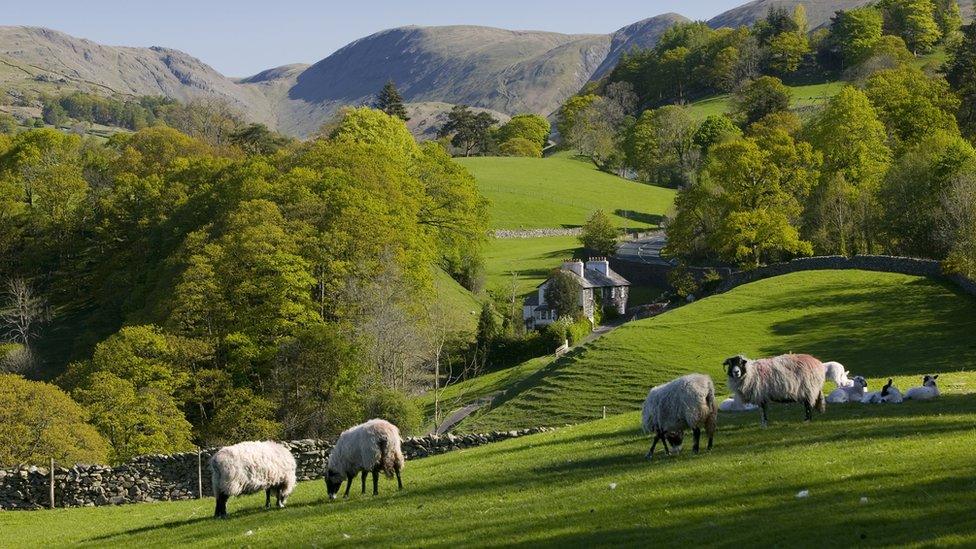
The new plans could affect farmers with livestock like sheep
If New Zealand goes ahead with its proposed plans, the move would make it the first country in the world to charge its farmers for the methane produced by the animals they keep.
New Zealand currently has something known as the emissions trading scheme in place.
The scheme aims to reduce greenhouse gas emissions over time through a unique trading system where companies can either buy or sell what are known as units.
These units control the levels of greenhouse gases a companies is allowed to emit. The government reduces the number of these units which are available each year, forcing companies to find ways to reduce their overall emissions.
Up until now, greenhouse gas emissions which come from agriculture haven't been included in the scheme. Some people have criticised this as they feel the government need to do more to help stop global warming.
Greenhouse gases are those in the Earth's atmosphere which contribute to global warming. They trap the Sun's heat, causing the Earth's temperature to increase.
Some of the main greenhouse gases aside from methane are carbon dioxide and nitrous oxide.
Methane is the second most common greenhouse gas after carbon dioxide.
"There is no question that we need to cut the amount of methane we are putting into the atmosphere, and an effective emissions pricing system for agriculture will play a key part in how we achieve that," New Zealand's climate change minister James Shaw said.
Under the proposed plans, farmers in New Zealand will have to pay for their gas emissions from 2025.
The plans also include benefits for farmers who reduce their emissions through things like planting trees on farms, or by adding methane reducing feed additives to their animals' food.
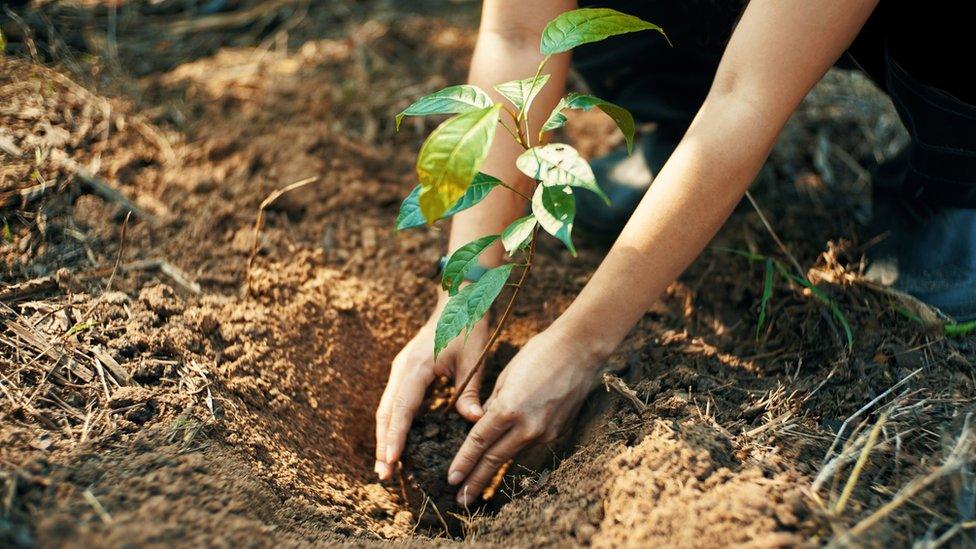
Things like planting trees can help offset greenhouse gas emissions
Around 40% of methane comes from natural sources like wetlands, but the bigger share comes from a range of human activities, ranging from agriculture, such as cattle and rice production, to rubbish dumps.
At last year's COP26 environmental conference in Glasgow, the US and the EU agreed to cut emissions of the gas by 30% by 2030.
More than 100 countries, including New Zealand, have also signed up.
"We've been working with the government and other organisations on this for years to get an approach that won't shut down farming in New Zealand, so we've signed off on a lot of stuff we're happy with," Andrew Hoggard, who is a dairy farmer and the national president of Federated Farmers of New Zealand, told the BBC.
Although he largely agrees with the government's proposed plans, he also knows that there will be some challenges with putting them in place.
"There are still the nuts and bolts to be hammered out, like who actually implements the scheme, so there's still stuff to work through with the government."
The money raised from the scheme will be invested in research, development and advisory services for farmers, the country's environment ministry said.
- Published4 May 2022
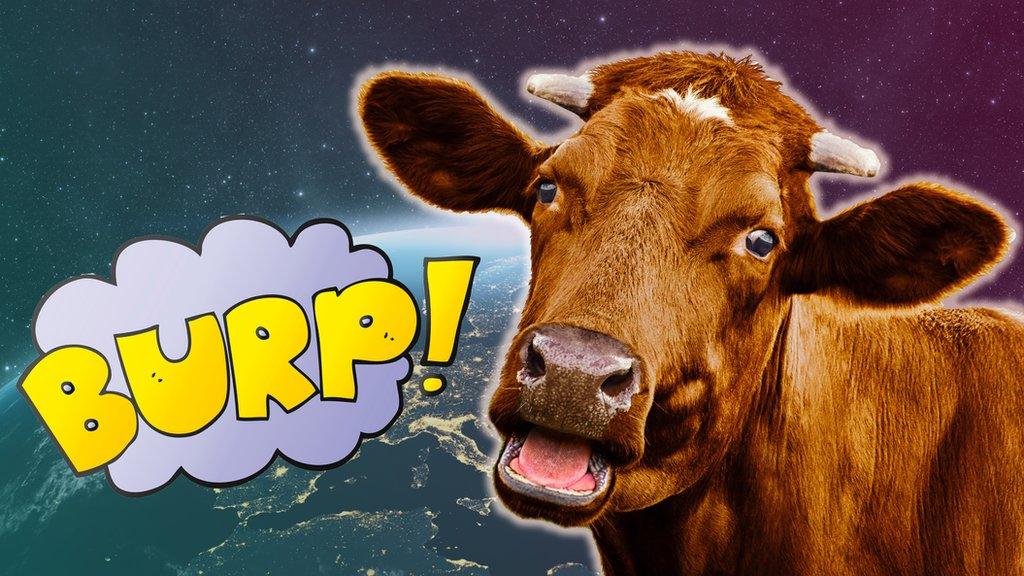
- Published28 April 2022
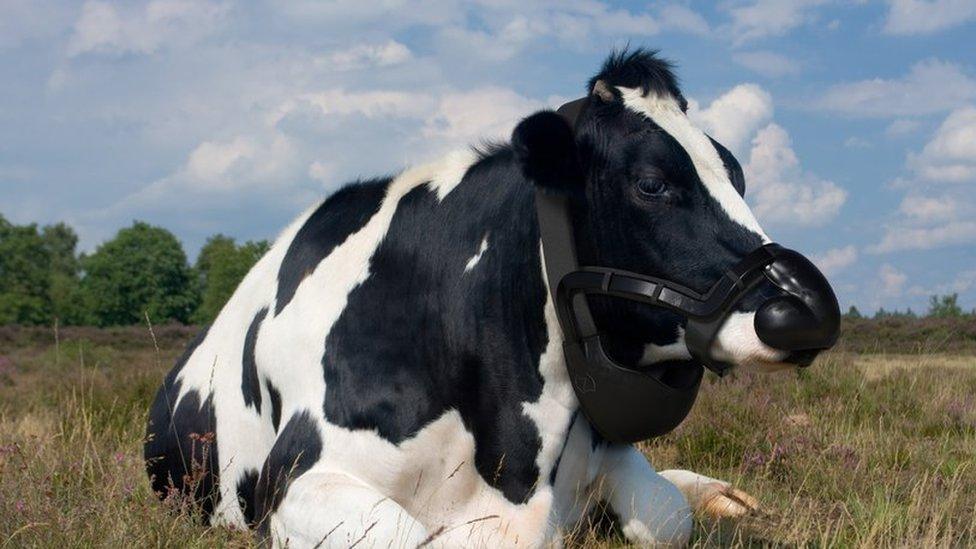
- Published17 August 2019
